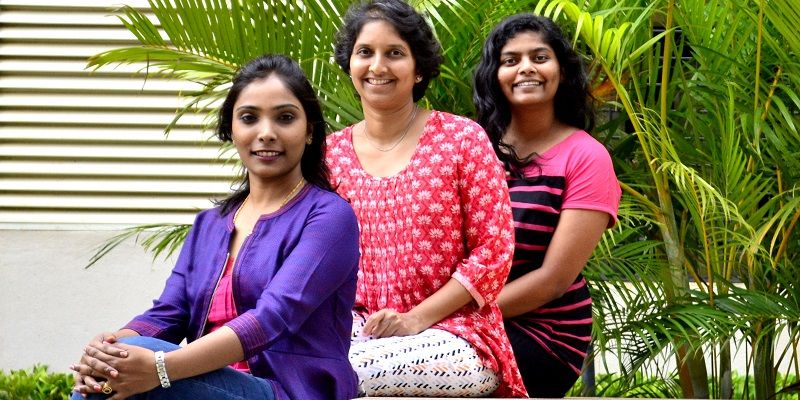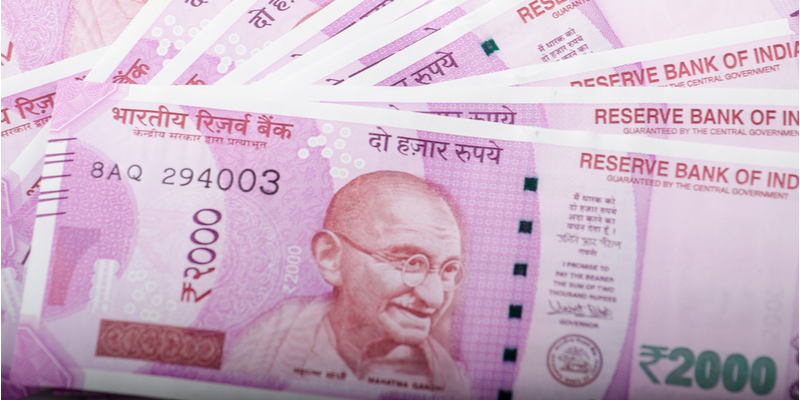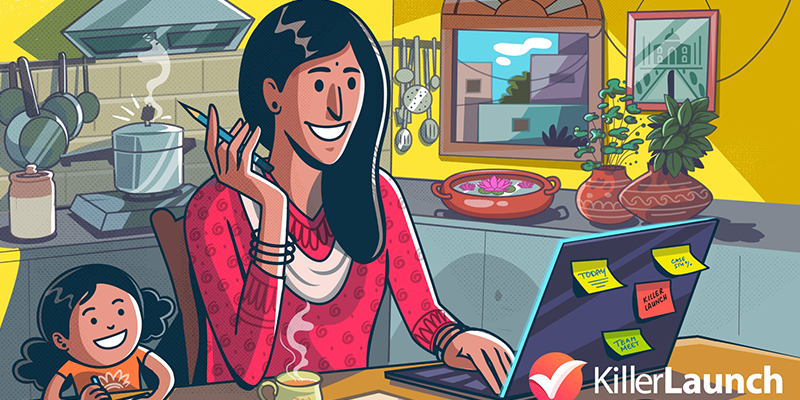How Shantala Damle built Avala Hejje to empower women
There are close to 12 million women enlisting for higher education every year, yet there is no data on rural women and urban poor and how they fair after passing out or dropping out of college.
Having spent over two decades in the US, Shantala Damle was one of those Indians who just don't forget their home land. They yearn to give back in the form of knowledge, and that was the driving force for Shantala too.
An engineer working on hardcore coding projects along with business teams to win clients, Shantala, in 2010, realised many problems plagued India, and that she could no longer ignore issues back home.
“I came back and became involved in politics. I joined a party in 2011, and even contested elections,” says Shantala, the founder of Avala Hejje.
For the last five years, she has been the convener for the Aam Admi Party. However, this year, she realised she had to use her knowledge of systems and processes to help underprivileged women who don't have access to basic information.

“I travelled across Karnataka and realised women need information, in rural areas, to do basic things,” says Shantala.
Say, for example, if a woman is building a house alongwith her husband, and has no way to understand the construction or the legalities. In cases such as these, Avala Hejje steps in. Shantala was joined in by the founding team Lekha Naidu and Suma Annegowda both of whom began to create a platform for women to be trained for 30 to 90 days on soft skills, and to gather information about business and getting things done. Shantala’s team has already performed workshops across a few colleges in Karnataka.
The company’s business model is to compile videos, bringing renowned individuals in academia and industry to teach rural woman. Payments are made by NGOs, colleges and high net worth individuals who sponsor the programme.
The company also brings a holistic approach to learning. It uses theatre, gaming and lectures to ensure complete understanding of a subject. The target for Avala Hejje is to start training women who are 18 years of age, and also bring in older women up to the age of 35 on the platform.
“My stint in politics made me realise India is so many pockets of excellence, yet only in these islands do people thrive and women are the most neglected outside of these islands,” she says.
Shantala plans to collect data on behaviour of women from these training modules and eventually use national data to create inclusive programmes for underprivileged women.
Today, the company has taken baby steps and conducted a few programmes. It plans to be in five cities by the end of next year, and in 10 more by 2019. It will expand based on a franchise model, where the franchisee will take all training modules of Avala Hejje, and implement them.
In a sense, Avala Hejje is an education and training startup. Shanthala is reluctant to start an online platform yet because she says smartphone-consuming individuals are not the company’s target audience. “Rural India and urban poor still depend on brick and mortar interventions,” she adds.
The market opportunity for Avala Hejje
According to the IBEF, with approximately 28.1 percent of India’s population in the age group of 0-14 years as of 2015, the country has more than 1.5 million schools with over 260 million students enrolled.
In higher education, there are more than 34.2 million students enrolled in approximately 48,116 colleges and institutions, which is what Avala Hejje is after because close to 30 percent of these enrollments are women. There are close to 586 million women in India and about 70 percent of them are less than 40 years of age. However, rural education still struggles to move women towards higher education and even have enough life skills to survive other than working in farms.
“Interventions are necessary to improve skills in India and Karnataka being a progressive state excellence centres help industry and students,” says Priyank Kharge, IT Minister in Karnataka.
The education industry in India is estimated to reach $144 billion by 2020 from $97.8 billion in 2016.By these sheer market statistics, there are no data led interventions for women. Most of the well-known programmes are led by companies like Mahindra and Mahindra. There are several NGOs and Corporate CSR programs that try to help women. But, there is nothing done with data.
In light of India’s severe shortage of teacher, it eases the burden on the government by recruiting teachers from a crop of qualified, young graduates. According to the Human Resource Development Ministry, India needs at least 12 lakh teachers, and 5.23 lakh posts are vacant in government schools.
Avala Hejje wants to bridge these Islands of Excellence, and create a network that could empower women. Shantala, Suma, and Lekha have already started with Avala Hejje, which means baby steps in Kannada, but there is a long road ahead.











